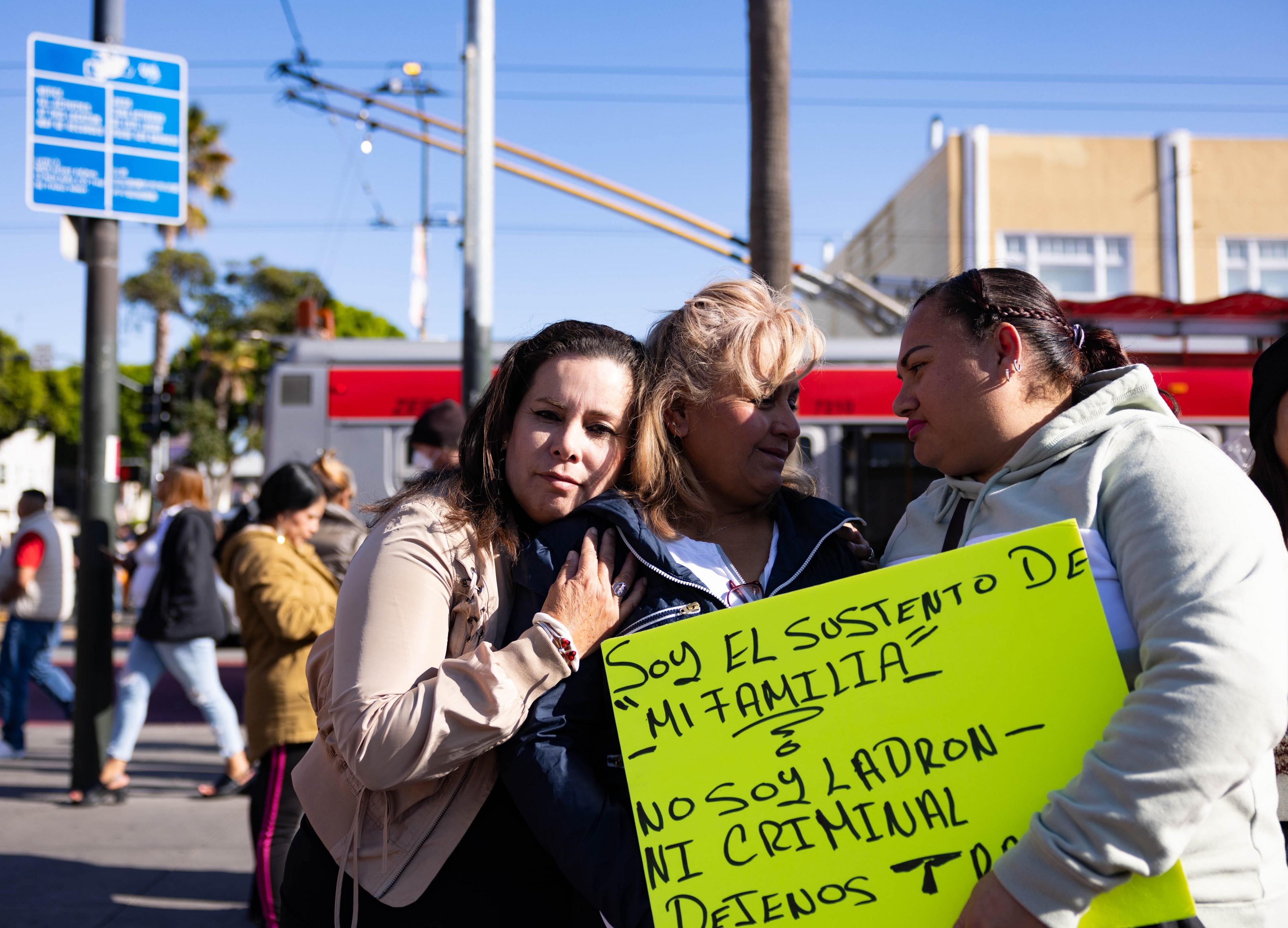San Francisco plans to pay cash to a group of legitimate street vendors who have been negatively impacted by a recent ban.
In response to mounting complaints about illegal vending in the Mission District, Supervisor Hillary Ronen spearheaded a 90-day ban on all street vending on Mission Street last month.
The crackdown, accompanied by the opening of two indoor markets, left many permitted vendors losing out on earnings as the holidays approach.
Now, in an effort to address those inequities, the Office of Economic and Workforce Development is offering $1,000 to approximately 40 street vendors, according to a statement from Mayor London Breed’s office.
“San Francisco is committed to creating economic pathways for our permitted vendors and identifying resources and opportunities that support their long-term sustainability,” the statement read.
In addition to sums of cash, Breed’s office said the city is offering business consulting services, workforce training, marketing support and “holiday-themed events and activations to attract customers.”
Rodrigo Lopez, one of the permitted vendors who moved indoors to the 2137 Mission St. location, confirmed that city officials and the Latino Task Force approached vendors about the money but said there was confusion about how vendors would get paid.
According to Lopez, members of the Latino Task Force took vendors’ information down to contact them but were not given a concrete answer on how to apply for the funds or when the money may be available.
“The supervisor’s office said last Thursday that money would be available on Dec. 15 in the form of a payment card,” he said.
The cash supplements are available to “previously approved” vendors—like Lopez—who are “eligible based on income,” according to the mayor’s office.
When Lopez and a group of vendors spoke with a representative from the Latino Task Force on Monday, they said they were informed it may take months for money to get to vendors.
“They said it could be delayed two to three months for us to get it,” Lopez said. “They said it is a process and they didn’t have the money or believe it would be ready by the 15th.”
Lopez appreciates the city’s gesture but believes that the cash isn’t enough to recoup the vendors’ losses ahead of the holiday season. The same concern was brought up in a community meeting in late October.
“I invested about $5,000 for this holiday season, which covers November and December,” Lopez said, adding that he used credit cards while other vendors took out small loans that they’ve told him they can’t pay back due to the ban.
“So $1,000 really doesn’t make up my expenses,” he said. “It’s money, and it helps. I won’t say it doesn’t, but it really is a grain of sand compared to what I’ve spent. I’ve lost faith in the politics of the city of San Francisco.”
Ronen told The Standard the payments weren’t intended to recoup all the losses from the ban.
Rather, she said the cash supplements, along with the other support offered, are supposed to give vendors a chance to stabilize their businesses or find other sources of income.
“We know that this transition has been hard for the vendors, and we wanted to ease that transition,” Ronen said. “The financial assistance wasn’t intended to make them whole, to provide replacement income for their business.”
Ronen added that while vendors have been particularly displeased by the ban, she’s received more thank-you notes over this measure than ever before in her career as a legislator. That being said, she said she still hopes the city can find ways to support legitimate vendors harmed by the move.
“Everyone wants to bash San Francisco for our street conditions, and when we get it right, we still get bashed,” Ronen said. “We 100% believe we can do this. We can figure out an alternative source of income for 40 vendors.”
Correction: A photo caption in this story was updated with the proper spelling of Supervisor Hillary Ronen’s name.
